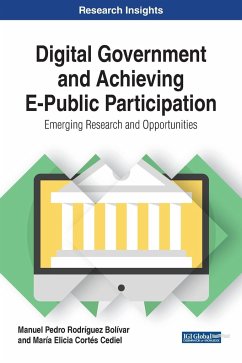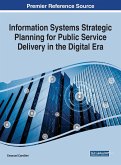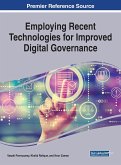The development of social technologies has brought about a new era of political planning and government interactions. In addition to reducing costs in city resource management, ICT and social media can be used in emergency situations as a mechanism for citizen engagement, to facilitate public administration communication, etc. In spite of all these advantages, the application of technologies by governments and the public sector has also fostered debate in terms of cyber security due to the vulnerabilities and risks that can befall different stakeholders. It is necessary to review the most recent research about the implementation of ICTs in the public sector with the aim of understanding both the strengths and the vulnerabilities that the management models can entail. Digital Government and Achieving E-Public Participation: Emerging Research and Opportunities is a collection of innovative research on the methods and applications of ICT implementation in the public sector that seeks to allow readers to understand how ICTs have forced public administrations to undertake reforms to both their workflow and their means of interacting with citizens. While highlighting topics including e-government, emergency communications, and urban planning, this book is ideally designed for government officials, public administrators, public managers, policy holders, policymakers, public consultants, professionals, academicians, students, and researchers seeking current research on the digital communication channels between elected officials and the citizens they represent.
Hinweis: Dieser Artikel kann nur an eine deutsche Lieferadresse ausgeliefert werden.
Hinweis: Dieser Artikel kann nur an eine deutsche Lieferadresse ausgeliefert werden.








